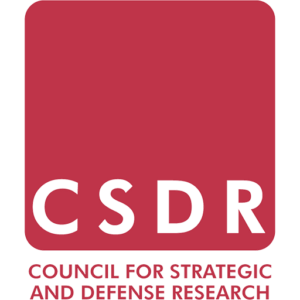From Trees to Forests: The Evolution of India-Middle East Ties Post 2014

This report examines the evolution of India-Middle East relations from 2014 to 2025, highlighting how these ties have transformed through distinct phases: establishing independent bilateral relationships (by 2014), strengthening these connections (by 2019), creating new regional cooperative frameworks based on mutual trust (by 2024), and safeguarding these gains amid renewed regional conflict.
Korea Chair Bulletin: Apr-May 2025

The Korea Chair Bulletin provides research-driven insights into India-South Korea relations, covering policy shifts, strategic dialogues, and emerging trends. It also highlights key developments and news from the Korean Peninsula.
Tapping into the Momentum: The EU-India Trade and Technology Council

This analysis explores the EU-India Trade and Technology Council (TTC), a key mechanism for deepening the strategic relationship between the European Union and India amidst shifting global dynamics. It highlights areas of shared interest, including strengthening semiconductor ecosystems, promoting trustworthy AI, and fostering collaboration in clean and green technologies, often seeking to reduce reliance on other dominant global powers.
Operation Sindoor: A Timeline

This report chronicles the April-May 2025 India-Pakistan conflict sparked by a terrorist attack in Pahalgam. It details escalating military exchanges featuring drone warfare and precision strikes, while tracking diplomatic interventions. The confrontation demonstrated conventional warfare under nuclear shadow before ending with a May 10 ceasefire.
Korea Chair Bulletin: Mar-Apr 2025

The Korea Chair Bulletin provides research-driven insights into India-South Korea relations, covering policy shifts, strategic dialogues, and emerging trends. It also highlights key developments and news from the Korean Peninsula.
The 2021 India-Pakistan Ceasefire and the Road Ahead

This report analyzes the 2021 India-Pakistan ceasefire that has successfully endured for four years, providing crucial relief to border communities. The study examines differing national interpretations and concludes that sustaining this rare diplomatic success depends on addressing cross-border terrorism and maintaining political commitment from both sides.
